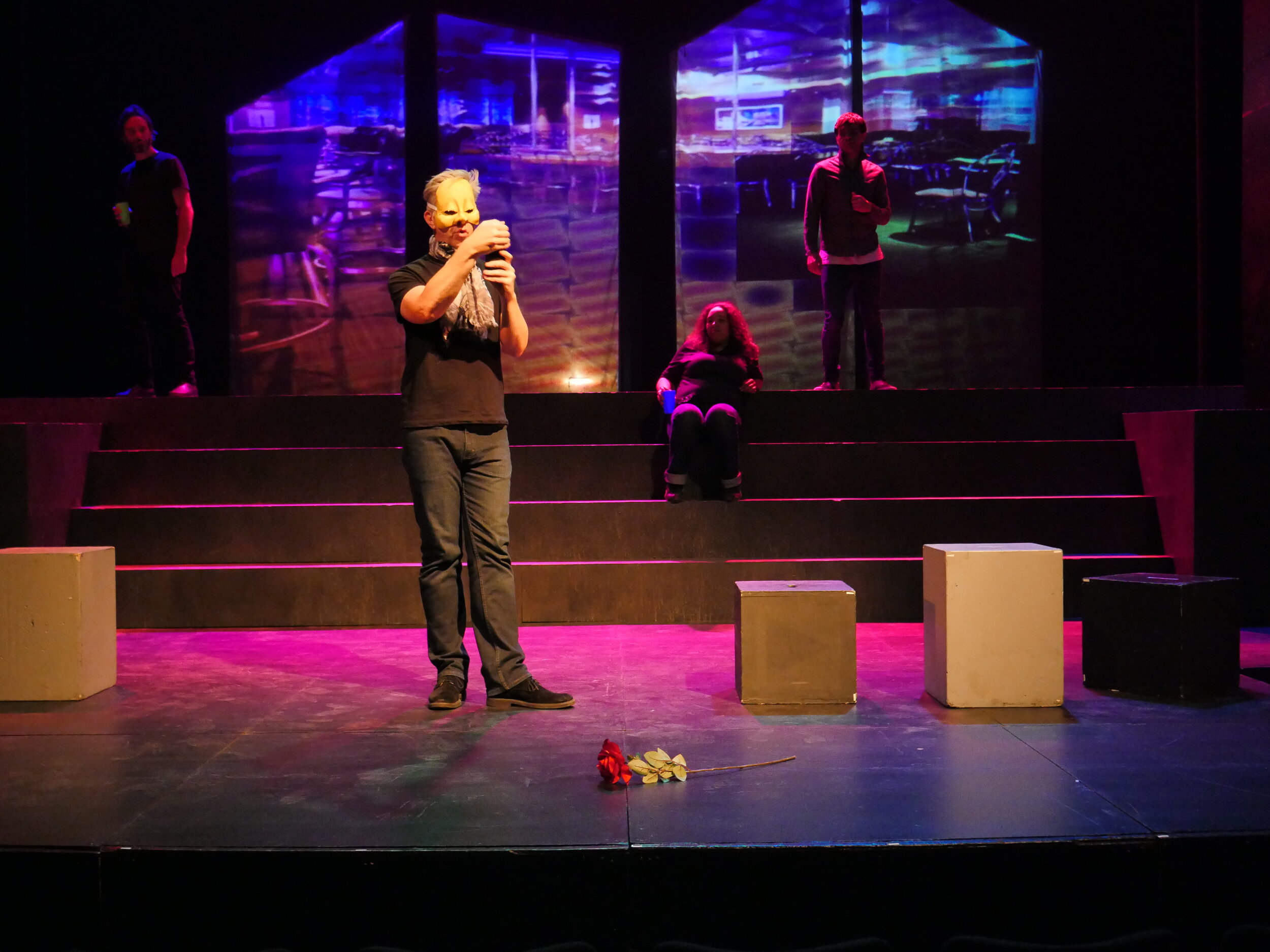Shakespeare's Sonnets: Transforming the Voices of Montréal
Using comic half masks and under the ‘trance’ of the mask, actors find contemporary characters and situations to render the obscure Elizabethan language and word-play understandable to a contemporary audience. "Sonnets" allows the distinct voices of Montréal, discovered by the magic of the comic half-mask, to distil the words of Shakespeare into stories and emotions so contemporary they will sound as if spoken on the streets and subways of Montréal today.
David Schalkwyk, the internationally renowned Shakespeare Scholar, Professor at Queen Mary College, University of London, former editor of Shakespeare Quarterly and the Director of Research of the Folger Shakespeare Library, was there on opening night. The next day he gave a public lecture organized by the McGill Department of English, entitled, “Shakespeare’s Voice". He began his talk with an astonishing complement to our work, saying it was: “an extraordinary embodiment of Shakespeare’s sonnets”. He went on to confess that if he had seen our production earlier he would have ripped up his paper and started anew. Then throughout the talk he continued to make positive references to the actors and our ‘play’. It was a true vindication of our work and an example of how artists can be on the cutting edge of “research” into academic perception of the literary heritage of humankind. Our rehearsal period had been, of necessity far too brief, and we had forgotten that we were actually exploring aspects of Shakespeare’s sonnets never explored anywhere in the world before.
Featuring:
Amir Sám Nakhjavani, Ellen David, Charles Bender, Carmen Grant, Mariah Inger, Shawn Campbell, Holly Gauthier-Frankel, Manouchka Elinor
Infinithéâtre presented the contemporary exploration of Shakespeare’s Sonnets: Transforming the Voices of Montréal. in Moyse Hall at McGill university with the support of the The McGill Department of English.
We are definitely not taking an academic approach to Shakespeare’s Sonnets. We have rendered the language into authentic, human dialogue — easily understood, but without changing a word. The collection of masks serves to ignite and animate the characters within, who are rich, visceral and diverse. The eight multitalented and creative actors are driven and full of imagination, and bring these works to life in a fresh way.
David Schalkwyk, the internationally renowned Shakespeare Scholar, Professor at Queen Mary College, University of London, former editor of Shakespeare Quarterly and the Director of Research of the Folger Shakespeare Library, was there on opening night. The next day he gave a public lecture organized by the McGill Department of English, entitled “Shakespeare’s Voice". He began his talk with an astonishing complement to our work, saying it was: “an extraordinary embodiment of Shakespeare’s sonnets”. He went on to confess that if he had seen our production earlier he would have ripped up his paper and started anew. Then throughout the talk he continued to make positive references to the actors and our ‘play’. It was a true vindication of our work and an example of how artists can be on the cutting edge of “research” into academic perception of the literary heritage of humankind.
Our rehearsal period had been, of necessity far too brief, and we had forgotten that we were actually exploring aspects of Shakespeare’s sonnets never explored anywhere in the world before.
“This extraordinary embodiment of Shakespeare’s sonnets takes them off the page and speaks through them in powerful and startling ways about contemporary life.”
--David Schalkwyk, Professor of Shakespeare Studies, Queen Mary University of London






